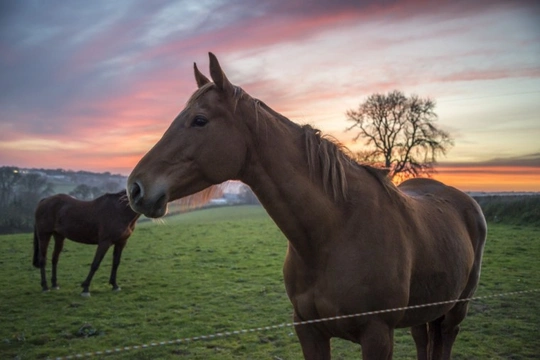
Recent developments in the Equine Flu outbreak
After the recent episode of _BBC Countryfile_which featured the Equine Influenza outbreak endemic across the UK, where does that leave the average horse owner in terms of protecting their precious equine friend from contracting the disease?
Here are some key points to bear in mind.
- Coverage of vaccinated horses in the UK is around 40% currently but to try and control the disease, uptake of vaccine needs to stand at around 95%
- From a handful of cases across the UK last year, there is now equine influenza in all counties across the country
- Vaccinating horses is desirable but not mandatory although if you compete, you will need to have your horse vaccinated
- Each competitive discipline has different rules and many have updated their requirements in light of this year’s disease outbreak
- Flu vaccination has been an annual occurrence other than for international horses but most disciplines are now asking for six-monthly boosters and are not accepting horses at competitions which have not been vaccinated within the previous six months
- Some disciplines require a ‘stand-down’ period where the horse may not be presented at competition within seven days of vaccination. Not all insist on this so check with your governing body
- Horses can react to the vaccine and become under the weather or develop a stiff and painful neck muscle at the site of the injection. It is advisable therefore not to vaccinate just prior to competition even if your discipline permits it
- If the event you plan on attending is at a yard or venue centre where there are resident horses, they may have a vaccination policy which is different from the organisation running your competition. Many sites which run affiliated competition and have resident horses are asking for six-monthly coverage of all visiting horses so don’t overlook this and simply follows your organiser’s requirements which may differ
- When out at an event, don’t share equipment or water buckets with neighbouring horse owners.Try to avoid contact between horses and resist touching other people’s horses. Don’t allow your horse to graze
- If you are on a livery yard, check with the owners or yard manager on their policy for introducing new horses to the yard. Vaccinated horses can still contract flu from new arrivals so new horses should be placed in an isolation box to establish they are free from flu and other diseases like strangles
- Be alert for the signs of illness in your own horse even if he is regularly vaccinated.Protected horses can still develop a milder version of the disease
- If you not vaccinating against equine influenza, then you are probably also not vaccinating against tetanus (lockjaw) coverage for which is added to the flu vaccine on a biennial basis. Lockjaw is a very serious disease which can prove fatal and is caused by bacteria from the environment entering wounds. Horses which survive require intensive nursing over a long period of time. Lockjaw is potentially a more serious disease than equine flu
- You can receive regular updates to your phone or electronic device from the Animal Health Trust in Newmarket who are responsible for testing and monitoring the progression of this disease. Any changes in advice can be found here first so get all your news straight from the horse’s mouth
Recognising the symptoms of equine flu
- A harsh, dry cough that may last for several weeks
- Nasal discharge, watery at first and then turning a thick yellow or green colour
- A very high temperature of 39-41C
- Enlarged, prominent glands under the bottom jaw
- Depression, lethargy and no appetite
- Sometimes filling of the lower limbs
If you suspect your horse has flu, you should call the vet immediately making clear what you suspect.The horse should be isolated as a precaution. Stable yard companions or grazing friends should be closely monitored to see if they also develop signs of the disease. Your vet will confirm a diagnosis based on clinical symptoms and a blood test and nasal swab.
If horses are vaccinated and proper isolation procedures are followed then the current flu outbreak can be brought under control over a period of time. Unless and until a very high percentage of the UK’s equine population is immunised against this disease then it will continue to spread and remain a problem for all horses whether they are vaccinated or not.



